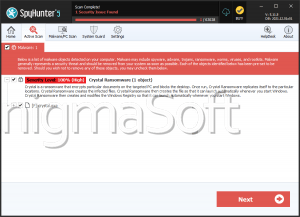Email Account Requires Verification Scam
In today's digital age, users must remain vigilant when dealing with dubious and unexpected emails to avoid falling for online tactics. Cybercriminals frequently employ sophisticated techniques to trick individuals into disclosing sensitive information. One such tactic, known as the Email Account Requires Verification scam, preys on unsuspecting recipients by masquerading as an urgent request for email account verification. Understanding the nature of these tactics and recognizing their warning signs can help users protect themselves from potential harm.
Table of Contents
The Nature of the Email Account Requires Verification Scam
The 'Email Account Requires Verification' scam involves spam emails that falsely claim a critical verification process is necessary for the recipient's email account. The emails warn that failure to complete the verification process by a specified date will result in service interruptions and potential loss of account access. These messages often contain a link to a phishing website designed specifically to steal the recipient's login credentials.
Anatomy of the Deceiving Email
Phishing emails typically carry a subject line such as '[EMAIL ADDRESS] requires complete verification' to create a sense of urgency. They assert that the verification must be completed within three days, or the recipient risks losing access to their email account. This urgency is a common tactic used by scammers to pressure recipients into acting quickly without considering the legitimacy of the request.
The Phishing Website
The link provided in the deceiving email directs recipients to a phishing website that mimics the old logo of the Zoho Office Suite. This fake page prompts visitors to sign into their email accounts, thereby capturing their login credentials. Once the credentials are entered, they are sent to the fraudsters, who can then exploit the information for various unsafe purposes.
Potential Consequences
Emails are highly prized by cybercriminals due to the sensitive information they often contain. A compromised email account can be exploited as a gateway to numerous other accounts and services. Criminals can use stolen credentials to:
- Harvest the identities of account owners.
- Request loans or donations from contacts, friends, or followers.
- Endorse other scams and spread malware through malicious links or files.
- Hijack finance-related accounts for fraudulent transactions and purchases.
The consequences of falling for such a tactic can include severe privacy issues, financial losses and identity theft.
Warning Signs of Phishing Emails
To distinguish legitimate emails from phishing tactics, users should look for the following warning signs:
- Unsolicited Requests: Be cautious of unexpected emails asking for sensitive information.
- Urgency and Threats: Fraudsters often create a sense of urgency to prompt quick action.
- Suspicious Links: Move the mouse over links to check their actual destination before clicking.
- Generic Greetings: Legitimate emails usually address you by name, whereas scams may use generic terms like 'Dear User.'
- Grammar and Spelling Errors: Many phishing emails contain noticeable errors.
- Unfamiliar Senders: Verify the sender's email address and be wary of slight misspellings or unfamiliar domains.
What to Do If You Fall Victim
If you have already disclosed your account credentials to a phishing site, take immediate action:
- Change Passwords: Change the passwords of all potentially exposed accounts immediately.
- Enable Two-Factor Authentication (2FA): Enhance security by enabling 2FA on all accounts that support it.
- Contact Support: Contact the official support channels of the affected services to report the incident and seek assistance.
- Monitor Accounts: Regularly control your accounts for any suspicious activity.
The 'Email Account Requires Verification' scam highlights the importance of being cautious with unexpected emails. By recognizing the cautionary signs and understanding the tactics used by scammers, users can protect themselves from falling victim to such schemes. Always verify the legitimacy of any email requesting sensitive information, and take proactive steps to secure your online accounts.

